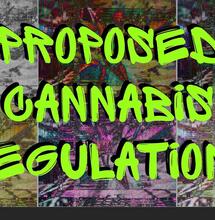The real threat is our lopsided drug laws

Re: The article "Cannabis grower is spared prison", Shepton Mallet Journal, May 23.
Re: The article "Cannabis grower is spared prison", Shepton Mallet Journal, May 23.
The police justified raiding this house on the grounds that cannabis growing was often linked to "serious criminality", yet there seems to be no indication that this man was involved in any way with anything like that, rather this was a home-grow operation designed as much as anything to prevent him buying cannabis from this criminal-dominated trade. His grow room was therefore reducing the impact of serious criminality, not adding to it. This is the case with virtually all small-scale home grows and really the police should understand this.
So it's worth pointing out that the only reason there is serious criminality involved in the cannabis trade is because this massively popular drug is subjected to the insane policy of prohibition.
The level of criminality has been ramped up in recent years as the police crack down on small-scale personal growers like this man, leaving the hugely profitable trade in the hands of people willing and able to use violence to defend their turf.
Main image for myprint-247
Business Cards From Only £10.95 Delivered www.myprint-247.co.uk
myprint-247
View details
Print voucher
If it worked the present drugs policy might be worth defending, but it doesn't. Prohibition is a policy that claims to be "drug control" but which in fact prevents any form of control or regulation of the trade. It should be obvious even to politicians that cannabis is not actually a controlled drug. We don't know who sells it, or where from. We have no idea of the strength, potency or even purity of the product on sale and it was a full 10 years before those supposedly in control noticed there had been a market shift from imported hash to home-produced "skunk" during the 1990s.
Interestingly as the report states the purity of the drugs has an impact on the sentence. It may surprise readers to know that the higher the purity, the higher the sentence. In other words if you are caught selling a product cut with rat poison, the sentence you can expect is lower.
This is another example of how prohibition works to encourage the contamination of street drugs. No other policy designed to protect the public would actually set out to increase the harms caused by a product in this way, indeed prohibition as a policy is unique in that it deliberately sets out to increase harm.
It seems to me to we need to come to terms with the reality of drug use in the UK, especially of cannabis. The only way to end clandestine growing is to fully legalise and properly regulate and control the trade. We need proper supervision of who sells cannabis, protection measures such as age limits for sale and regulation of strength and potency sold. Cannabis in fact should be a controlled drug in the plain English use of the word controlled.
Cannabis use isn't going to go away, the question is how do we deal with this reality, not whether we should.
Derek Williams
Pembroke Road
Norwich



